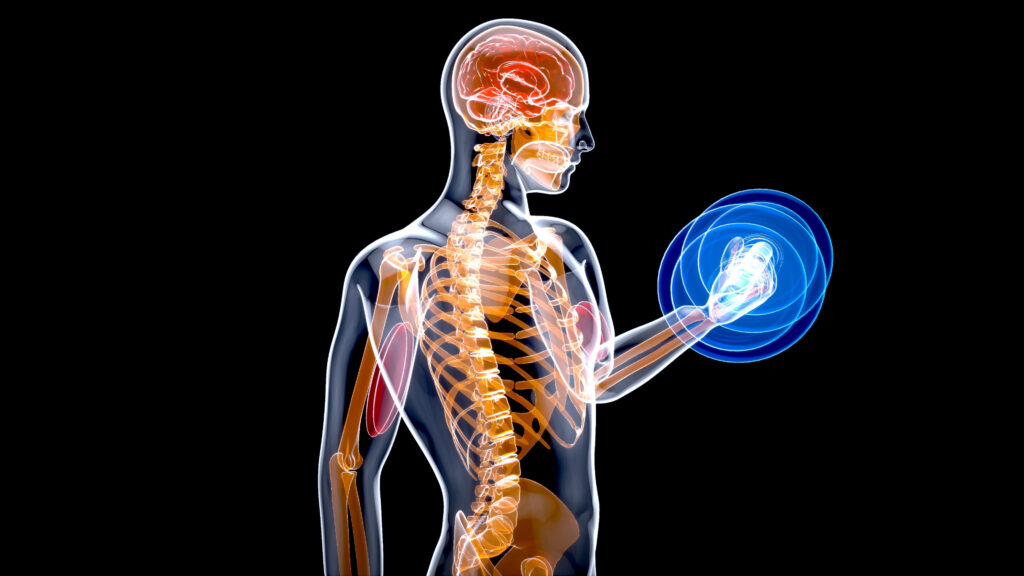Have you ever stopped to think about the benefits that strength training can bring to your health? We often associate physical exercise only with weight loss or cardiovascular fitness, but the benefits go far beyond that. In this article, we’ll explore in detail how strength training can positively impact bone and muscle health, providing a solid foundation for a healthy, resilient body.

Benefits for Bone Health
Bones are the support structure of our body, and maintaining their health is essential for a long and active life. Strength training, also known as resistance exercise, has been linked to significant benefits for bone health. Studies have shown that regular resistance exercise can increase bone mineral density and reduce the risk of osteoporosis, a condition characterized by decreased bone density and increased fragility of bones.
A study published in the Journal of Bone and Mineral Research showed that older adults who participated in a strength training program for a year significantly increased their bone mineral density compared to a control group that did not perform the training. This highlights the importance of strength training in preventing age-related bone loss.
To get the maximum benefits for bone health, it’s recommended to include a variety of resistance exercises that target different parts of the body, such as squats, weight lifting, push-ups, and lunges.
Muscle Health Benefits
Just like bones, muscles play a fundamental role in our ability to move and perform daily activities. Strength training is an effective way to strengthen and increase muscle mass, which can improve functionality and quality of life.
A study published in the Journal of Strength and Conditioning Research found that individuals who participated in a 12-week strength training program experienced a significant increase in muscle mass and muscle strength compared to the control group. Additionally, strength training can also help prevent sarcopenia, the age-related loss of muscle mass, by keeping muscles strong and functional over time.
Including a variety of exercises that target different muscle groups, such as bench presses, rows, push-ups, and dumbbell exercises, can help maximize muscle health benefits.
Impact on General Health
In addition to specific benefits for bone and muscle health, strength training can also have a positive impact on other areas of health. For example, improving muscle strength can help improve posture and prevent back pain, promoting better postural health and reducing the risk of injuries related to poor posture.
Studies have also shown that individuals who regularly engage in resistance exercise are less likely to develop chronic conditions such as type 2 diabetes and heart disease. This suggests that strength training may have wide-ranging health benefits beyond its direct effects on bones and muscles.

Conclusion:
Strength training offers a wide range of benefits for bone and muscle health, providing a solid foundation for a healthy, resilient body. By regularly including resistance exercises in your exercise routine, you can increase bone density, strengthen your muscles, and improve your body’s overall functionality.
Be sure to consult a healthcare professional or personal trainer before beginning any strength training program, especially if you have any pre-existing medical conditions. With dedication and consistency, you can reap the countless benefits of strength training and enjoy a healthier, more active life.
References:
- Kerr, D., Morton, A., Dick, I., & Prince, R. (1996). Exercise effects on bone mass in postmenopausal women are site-specific and load-dependent. Journal of Bone and Mineral Research, 11(2), 218-225.
- Strasser, B., & Schobersberger, W. (2011). Evidence for resistance training as a treatment therapy in obesity. Journal of Obesity, 2011, 482564.
- American College of Sports Medicine. (2009). American College of Sports Medicine position stand. Progression models in resistance training for healthy adults. Medicine & Science in Sports & Exercise, 41(3), 687-708.











